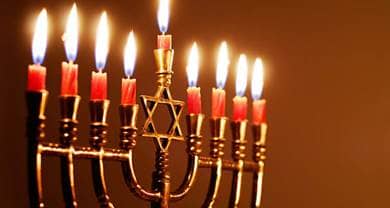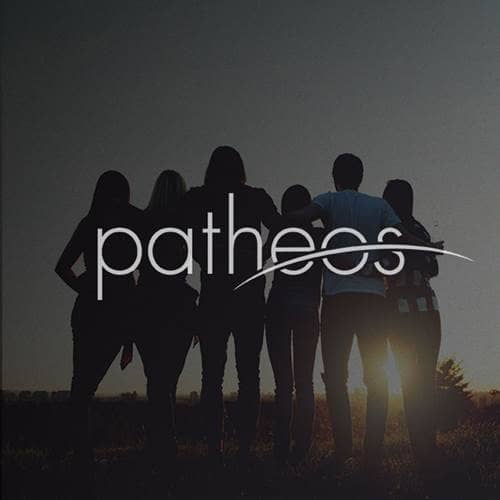- Trending:
- Pope Leo Xiv
- |
- Israel
- |
- Trump
- |
- Social Justice
- |
- Peace
- |
- Love

RELIGION LIBRARY
Judaism
Vision for Society
Beginning with the covenant between God and Abraham, out of which the Hebrew nation, and ultimately the Jewish faith, were forged, Judaism has always been the religion of a particular people, the progeny of the ancient biblical patriarchs and matriarchs. A central element of the covenant between God and Israel, which is the foundation of Judaism, was the promise of a "holy land" on which the nation of Israel might fulfill her destiny to serve God and, from which it will ultimately serve as a "light unto the nations."
Israel's mission is to communicate the Torah's core principles of monotheism and morality throughout the world. At the same time, however, the particular rites and laws of the Torah are believed to be incumbent only upon the Jews, and many of them can only be observed in the Land of Israel as they related specifically to the cult of the Jerusalem Temple and the natural cycle and agriculture of that country. As a result, rabbinic Judaism, while accepting voluntary converts as full members of the Jewish people, eschews all missionary evangelizing to the gentiles.  Indeed, the missions of Paul to the Greeks and Romans that are at the very core of the origins of Christianity—along with his rejection of the enduring validity of Torah law—were the central points of dissension between him and the rabbis and form the original fault-line between rabbinic Judaism and early Christianity.
Indeed, the missions of Paul to the Greeks and Romans that are at the very core of the origins of Christianity—along with his rejection of the enduring validity of Torah law—were the central points of dissension between him and the rabbis and form the original fault-line between rabbinic Judaism and early Christianity.
| Seven Laws of Noah |
| The following are prohibited: 1. idolatry 2. murder 3. theft 4. sexual promiscuity (including adultery, incest, bestiality, homosexuality 5. blasphemy 6. eating meat taken from a live animal 7. Requirement of setting just laws |
While it considers the covenant of law in the Torah to be binding only on Jews, Judaism has an exalted vision for all of humankind. On the immediate, practical level, Judaism teaches that all people are bound by the covenant encapsulated in the "Seven Noahide Laws" that God forged with Noah after the great deluge. The Talmud affirms that all non-Jews who adhere to these seven fundamental religious and moral principles are "Righteous Gentiles," and rules that they have a "portion in the world to come," or eternal life, on par with Jews who are fully observant of halakha, the entire system of rabbinical law. As a result of this positive posture toward Righteous Gentiles, there is neither impetus nor need to evangelize. Jewish theologians, from the prophets of ancient Israel to contemporary rabbis, have always envisaged a world perfected by a ubiquitous knowledge of, and obeisance to, the One God of Israel, and faithfulness to God's universal moral laws.
The messianic hope is one of the core beliefs of classical Judaism. It originated with the visions of the Hebrew prophets, most notably Isaiah, Jeremiah, and Ezekiel, in the aftermath of the dispersions and destructions of Israel and Judea, from the 8th through the 6th centuries B.C.E. The Hebrew prophets envisaged, in poetic and exalted terms, a world that "at the end of days would be peacefully united in the common worship of the world's only Creator and Judge."
 This universal hope, which in the Jewish tradition is synonymous with the messianic era, is however predicated upon the return of the lost exiles of the twelve tribes of Israel to the Holy Land (Israel), the re-establishment of the ancient kingdom of David, the re-building of Solomon's Temple, and the restoration of its ancient rites and rituals. This messianic utopianism thus combines both national and universal elements by envisaging a world united by belief in the God of Abraham, who dwells in Zion, or Jerusalem. In addition to any number of prophetic passages that articulate this vision, one of the most popular daily Jewish prayers, known as Aleynu, perhaps captures it most simply and directly:
This universal hope, which in the Jewish tradition is synonymous with the messianic era, is however predicated upon the return of the lost exiles of the twelve tribes of Israel to the Holy Land (Israel), the re-establishment of the ancient kingdom of David, the re-building of Solomon's Temple, and the restoration of its ancient rites and rituals. This messianic utopianism thus combines both national and universal elements by envisaging a world united by belief in the God of Abraham, who dwells in Zion, or Jerusalem. In addition to any number of prophetic passages that articulate this vision, one of the most popular daily Jewish prayers, known as Aleynu, perhaps captures it most simply and directly:
 Therefore do we wait for You, O Lord our God, soon to behold Your mighty glory, when You will remove the abominations from the earth, and idols shall be exterminated; when the world shall be regenerated by the kingdom of the Almighty, and all the children of flesh invoke Your name; when all the wicked of the earth shall be turned unto You. Then shall all the inhabitants of the world perceive and confess that unto Thee every knee must bend, and every tongue be sworn. Before You, O Lord our God, shall they kneel and fall down, and unto Thy glorious name give honor. So will they accept the yoke of Your kingdom, and You shall be King over them all speedily forever and ever. For Thine is the kingdom, and to all eternity You will reign in glory, as it is written in Thy Torah: 'The Lord shall reign forever and ever.' And it is also said: 'And the Lord shall be King over all the earth; on that day the Lord shall be One and His name shall be One.'
Therefore do we wait for You, O Lord our God, soon to behold Your mighty glory, when You will remove the abominations from the earth, and idols shall be exterminated; when the world shall be regenerated by the kingdom of the Almighty, and all the children of flesh invoke Your name; when all the wicked of the earth shall be turned unto You. Then shall all the inhabitants of the world perceive and confess that unto Thee every knee must bend, and every tongue be sworn. Before You, O Lord our God, shall they kneel and fall down, and unto Thy glorious name give honor. So will they accept the yoke of Your kingdom, and You shall be King over them all speedily forever and ever. For Thine is the kingdom, and to all eternity You will reign in glory, as it is written in Thy Torah: 'The Lord shall reign forever and ever.' And it is also said: 'And the Lord shall be King over all the earth; on that day the Lord shall be One and His name shall be One.'
In addition to Judaism's messianic vision, many modern Jewish theologians who advocate a contemporary universal vision of social justice often refer to the medieval mystical doctrine of tikkun olam, or the reparation of the world. Although originally understood by Jewish mystics as connoting a cosmic process culminating in the messianic age, and engendered by the theurgic, mystically-directed practice of prayer and the performance of the mitzvot, or biblical commandments, in modern Jewish thought the term usually carries its more literal and immediate meaning of correcting society's ills.
Thus, many contemporary synagogues and Jewish community centers sponsor tikkun olam programs ranging from soup kitchens, food drives, homeless shelters, and programs for the elderly, disabled, impoverished, and chemically dependant, to raising awareness of and funds for the victims of major tragedies, such as earthquakes, floods, famine, and especially genocide.
Study Questions:
1. What is the mission of Judaism? What is the role of ethnic identity within this mission?
2. What is the Aleynu? What does it reveal about Judaism's vision for society?
3. Why are works of social justice important to Judaism's vision for society?










